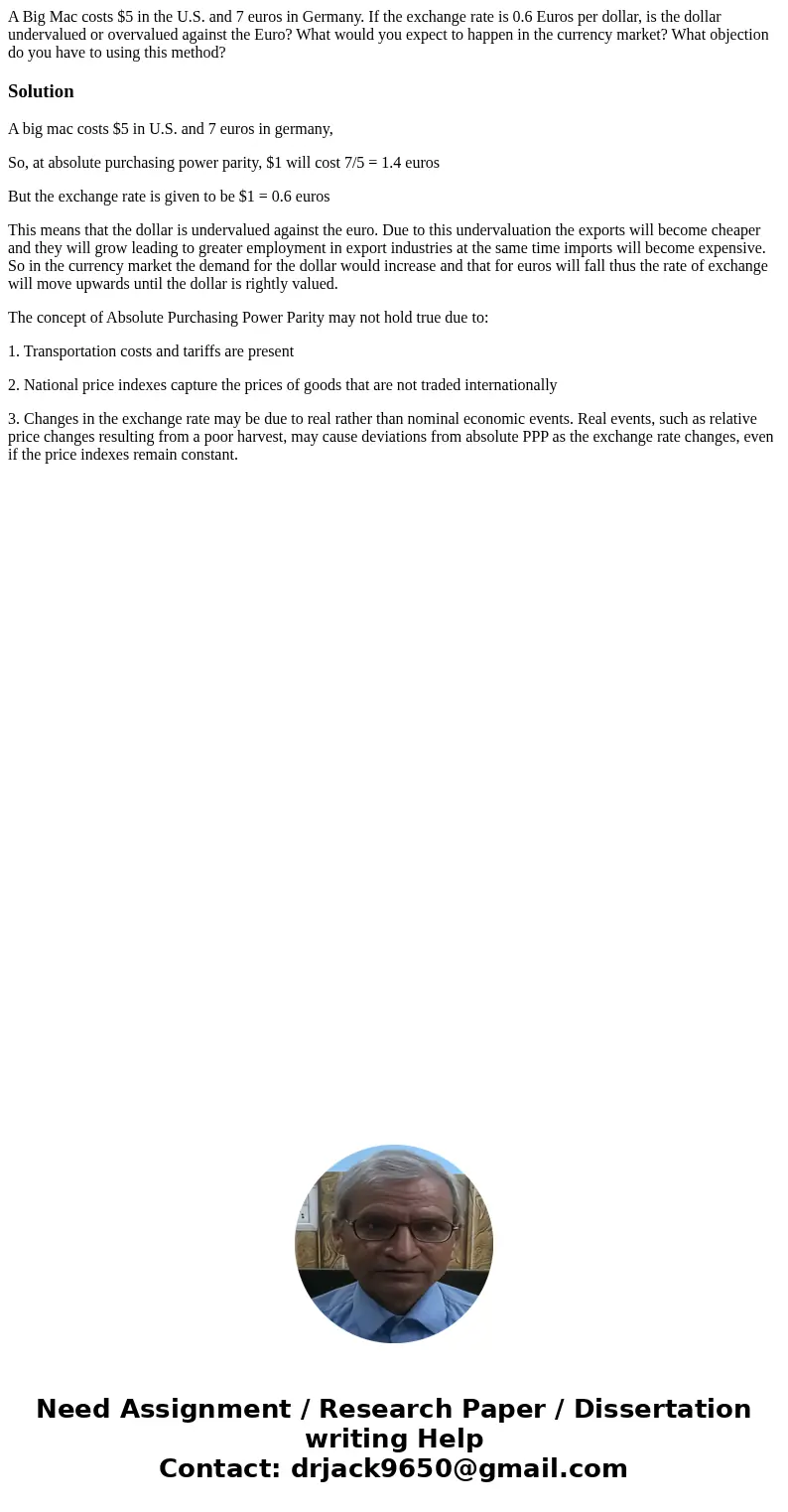A Big Mac costs 5 in the US and 7 euros in Germany If the ex
A Big Mac costs $5 in the U.S. and 7 euros in Germany. If the exchange rate is 0.6 Euros per dollar, is the dollar undervalued or overvalued against the Euro? What would you expect to happen in the currency market? What objection do you have to using this method?
Solution
A big mac costs $5 in U.S. and 7 euros in germany,
So, at absolute purchasing power parity, $1 will cost 7/5 = 1.4 euros
But the exchange rate is given to be $1 = 0.6 euros
This means that the dollar is undervalued against the euro. Due to this undervaluation the exports will become cheaper and they will grow leading to greater employment in export industries at the same time imports will become expensive. So in the currency market the demand for the dollar would increase and that for euros will fall thus the rate of exchange will move upwards until the dollar is rightly valued.
The concept of Absolute Purchasing Power Parity may not hold true due to:
1. Transportation costs and tariffs are present
2. National price indexes capture the prices of goods that are not traded internationally
3. Changes in the exchange rate may be due to real rather than nominal economic events. Real events, such as relative price changes resulting from a poor harvest, may cause deviations from absolute PPP as the exchange rate changes, even if the price indexes remain constant.

 Homework Sourse
Homework Sourse